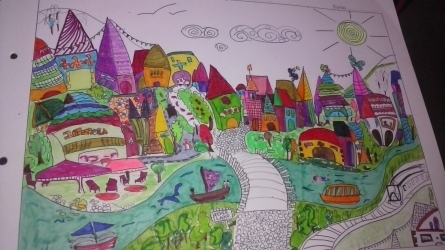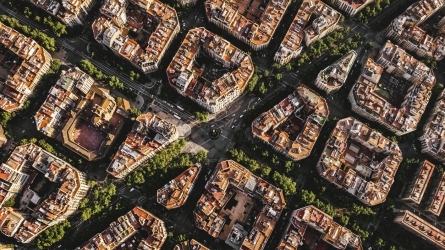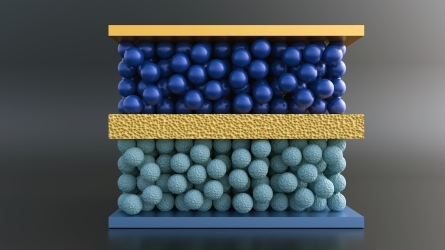
Developing creativity: digital magazine and short story
Description
Approved by the Education Department of Navarra Government and by the Education Department of the Basque Government (Cod. 1868170032) (official certificate issued).
- 30 hours during 4 weeks ( 7-8 working hours per week)
- Beginning: 11/03/2019 End: 14/04/2019
Price: 80 euros
Official languages: Basque and English
This proposal consists of the presentation of cross-curricular materials that may be useful for our daily sessions. It is our objective to improve our daily work and to motivate our students by using some innovative materials presented in this course. We present a digital magazine that can be used as a good practice and we also present the methodological reflections on which this project is based. Among the tasks of the magazine, we concentrate on the production of a short story. We will talk about the structure of the story and some concrete technical features will be presented. Using these resources, our students will be able to develop their creativity and also their autonomy (Dam 1995), and we will also present strategies to help in the process of creating. The participants of this course will interact through the forum. Teachers will share interactive proposals, such as the short story resulting from the application of the strategies presented. In addition, we will inform about some European cross-curricular projects to work in a coordinated manner.
Objectives
Motivate our students working in a creative and dynamic way.
Present strategies to work in an autonomous way: magazine and short story.
Present samples and models to develop creativity: the digital magazine and some short stories will be helpful to develop ideas.
Present tools for multilingual and cross-curricular productions (triple literacy and other activities).
Group work will be on the bases of an interaction of several types.
Presentation of good practices to develop ideas.
Presentation of concrete strategies and techniques to start to create (steps to face an empty paper and the accordion).
Activity directed to
- University students
- Teachers
- Researchers
Program
05-03-2019 / 07-04-2019
sormena lantzen: aldizkari digitala eta ipuina
1. GAIA / PART I
11/03/2018 – 17/03/2018
Atal honi dagokion bibliografia irakurriko da lehenik, ikastaroaren oinarrian dauden bi planteamendu metodologikoei buruzkoa: adimen anitzak batetik eta ikaslearen ikasketa autonomoaren ondorio den sormena bestetik. Horiekin erlazio estuan DBHko ikasleek egindako posterrak aurkeztuko dira. Ekoizpen horiek aztertu eta hausnarketa egingo da. Saio honetan egindako gogoetak, aurrerantzean egin beharrekoaren oinarri izango dira.
We start reading the bibliography that corresponds to this section. We will reflect on two main methodologies, multiple intelligences, and the development of creativity based on learner´s autonomy. These approaches will be crucial for our practice and also basic as a point of departure. We will present some posters done by our students and analyze them.
2. GAIA / PART II
18/03/2018- 24/03/2018
Sormena lantzen laguntzeko eredu moduan aldizkari digitala aurkeztuko da. Eta hala, sormena eta autonomia garatzeko diseinatuta dauden materialetan surfeatuko dugu saio honetan. "Run like a girl" bideoa ikusi eta aztertuko da. Bideo hori edota aldizkarian aurki daitezkeen beste ereduak aintzat hartuz, arloak uztartzen dituzten praktika bat egitea eskatuko da.
The digital magazine will be presented as a model to develop creativity. We will surf into the materials designed and watch the video “Run like a girl” to reflect on the way different subjects are connected. Based on the video and on other samples, the participants will have to make a similar proposal for an interdisciplinary activity.
3. GAIA / PART III
25/03/2018 – 31/03/2018
Atal honetan ipuin laburra izango dugu aztergai. Helburu nagusia ikasleei baliagarriak izan dakizkioen pautak eta tresnak eskaintzea izango da, horiek baliatuz ipuin labur bat idatz dezaten.
This section will be devoted to the previous phase of the creation of a short story. Tools and tips will be given to help the students create a short story, both structural tips and also technical (see tips to write a short story).
4. GAIA / PART IV
01/04/2018-07/04/2018
Hizkuntzaren unibertsalak izango ditugu hausnarketagai eta horiekin erlazioan dauden hizkuntzen arteko antzekotasunak: kognatuak, funtzio gramatikalak, ezaugarri morfosintaktiko paraleloak, eta abar. Horrez gain, ipuin labur baten egitura unibertsala izango dugu hausnarketa gai.
We will reflect on language universals and similarities between languages: cognates, grammatical functions, morphological and syntactic parallelisms, structural universals and so on. We will have a look at the subsection of interactive plays in order to reflect on the links between languages. We will also reflect on the structure that short stories have in common, regardless of the language in which they are written.
Aurreko asteetan egindako ariketetan oinarrituz, ipuin labur bat idaztea izango da azken ataza, eta hala, arloenarteko lana bermatuko dugu.
The task of this section will be to write a short multilingual and interdisciplinary story showing the parallelisms and universals mentioned above. The layout of the short story will be designed based on the tips given.
Ikastaroan ikasitakoa jarraituz, ebaluazioa baino areago, autoebaluazio jarraia izango da nagusi. Applying what we have learnt in this course, evaluation will be continuous and mainly autonomous.
- Arantzazu Martinez Etxarri
- Alfredo Gil Larrinaga
Directors

Arantzazu Martinez Etxarri
Lizardi BHI, Hezkuntza
1988 Euskal Filologia, Deustuko Unibertsitatea. 1990 Masterra Hizkuntzalaritzan. University of Southern California, Los Angeles. 2015 Doktoradutza Hizkuntzalaritzan. Deustuko Unibertsitatea. Europar Proiektu eta nazioarteko ekintzetan parte hartu du, bai partaide moduan, baita koordinatzaile eta kudeatzaile moduan ere. Bestalde, Erasmus + proiektuen ebaluatzailea da 2008-. Proiektu hauetan guztietan garatutako materialak eta berrikuntza metodologikoak ikastaro honen ardatz izango dira.
Speakers

Alfredo Gil Larrinaga
CIFP Emilio Campuzano LHII (Atxuri)
1998 Arte ederrak, UPV-EHU. 2010 Doktoradutza Arte Ederretan, UPV-EHU.
Registration fees
| Registration | Until 13-03-2019 |
|---|---|
| 80,00 EUR |




